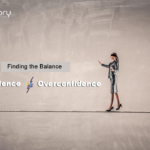Artificial intelligence (AI) is rapidly transforming the world around us, and the workplace is no exception. AI systems are already being used to automate tasks, make decisions, and solve problems in a wide range of industries. As AI continues to develop, it is likely to have an even greater impact on the way we work and the skills we need.
What are skills?
Skills are the abilities and knowledge that we use to perform tasks. They can be technical skills, such as the ability to code or operate a machine, or soft skills, such as the ability to communicate effectively or work well in a team. Skills are essential for success in any job, and they are becoming increasingly important in the age of AI.
How is AI changing the demand for skills?
AI is automating many tasks that were once performed by humans. This is leading to a decline in demand for some skills, such as data entry and customer service. However, AI is also creating new jobs and demanding new skills. For example, there is a growing need for people who can develop, train, and manage AI systems. Additionally, AI is augmenting the skills of human workers, allowing them to be more productive and creative.
What skills will be in demand in the future?
While it is difficult to predict the future with certainty, it is likely that the following skills will be in high demand in the years to come:
- Technical skills: AI, machine learning, data science, coding, and other technical skills will be essential for working with AI systems.
- Soft skills: Creativity, problem-solving, critical thinking, communication, and collaboration will be just as important as ever, if not more so.
- Adaptability: The ability to learn new skills and adapt to change will be essential in the rapidly changing world of work.
How can you prepare for the future of work?
The best way to prepare for the future of work is to develop a diverse skill set that includes both technical and soft skills. You should also focus on developing your adaptability and lifelong learning skills. Here are some specific tips:
- Learn about AI: Take a course on AI or machine learning to learn about the basics of these technologies.
- Develop your technical skills: Learn a programming language or two, or take a course on data science or big data.
- Strengthen your soft skills: Take a course on communication or leadership, or volunteer in your community to develop your teamwork skills.
- Stay up-to-date on the latest trends: Read industry publications and attend industry events to stay informed about the latest developments in your field.
Statistics on the future of skills and AI
- According to a McKinsey Global Institute report, up to 800 million jobs could be displaced by automation by 2030.
- However, the report also predicts that 950 million new jobs could be created in the same period, as AI creates new industries and demands new skills.
- The World Economic Forum estimates that by 2025, 50% of all employees will need to reskill or upskill to meet the demands of the changing workplace.
- A recent study by Deloitte found that 87% of executives believe that AI will have a significant impact on the skills required for their workforce in the next five years.
Conclusion
AI is transforming the workplace and the skills we need to succeed. While some jobs may be displaced by automation, AI is also creating new jobs and demanding new skills. To prepare for the future of work, it is important to develop a diverse skill set that includes both technical and soft skills. You should also focus on developing your adaptability and lifelong learning skills.
Here are some additional tips for preparing for the future of work:
- Network with people in your field and learn about their experiences with AI.
- Join online communities and forums to discuss AI and the future of work.
- Attend industry events and conferences to learn about the latest trends and developments.
- Volunteer or mentor others to share your skills and knowledge.
By taking these steps, you can position yourself for success in the rapidly changing world of work.














